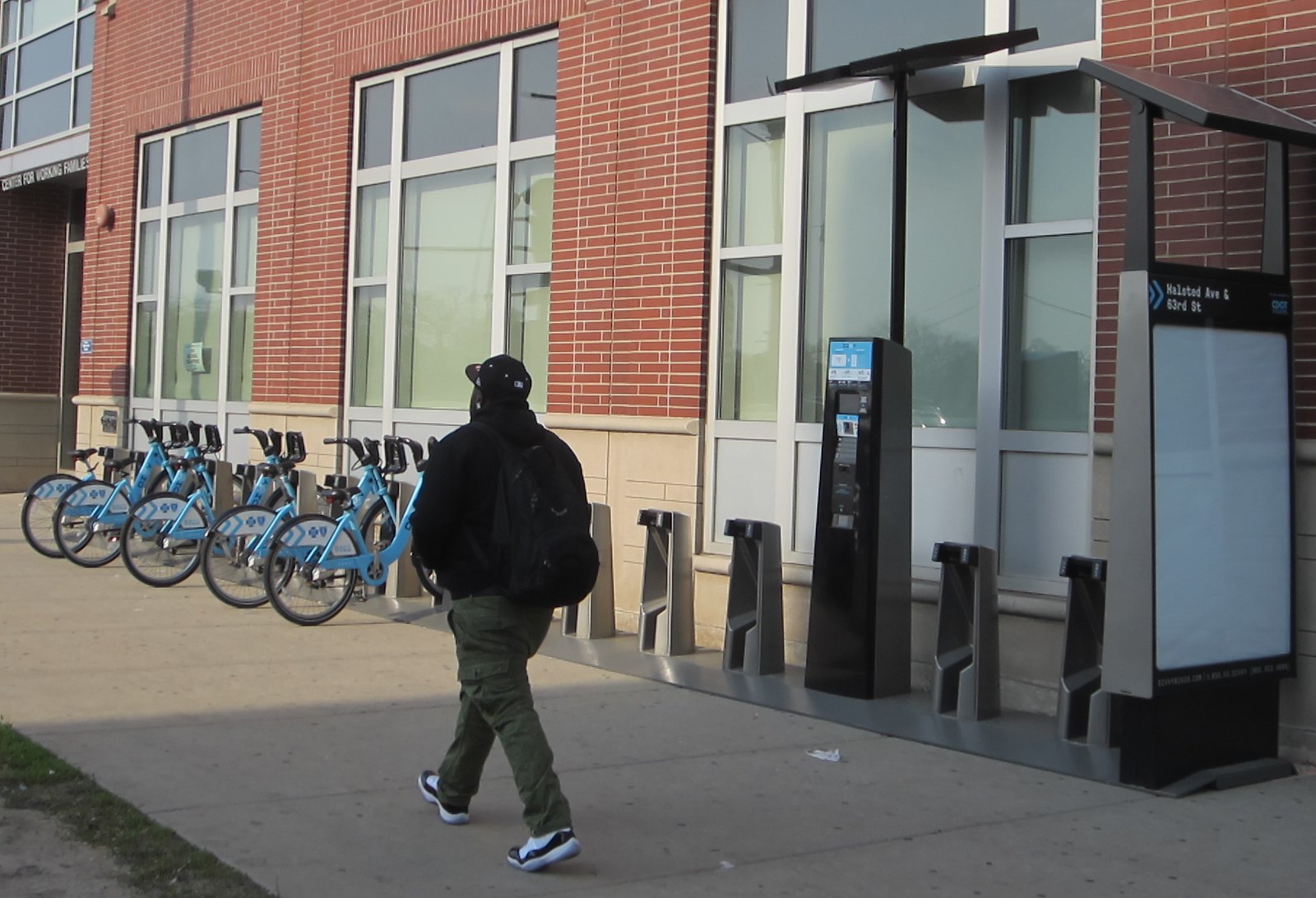As transportation advocates, if we're serious about improving conditions for walking, biking, and transit for everyone in Chicago, we have to look at things holistically. That includes acknowledging that how safe and free you are to travel through our city can be greatly influenced by where you live, your race, your gender, and other demographic factors.
In many parts town, worries about street crime are a major consideration when choosing one's travel mode and route. But for many Chicagoans of color, particularly African Americans, the potential for problematic treatment by the police -- including unfair stops, harassment, or even violence -- is an equally pressing concern.
For example, a January report from the American Civil Liberties Union of Illinois found that about 60 percent of the drivers pulled over by Chicago police in recent years were Black, even though African Americans only make up about a third of the city's population. However, motorists of color who were stopped were less likely to be carrying contraband than their white counterparts.
In 2018 the Chicago Police Department acknowledged that officers were writing exponentially more tickets for bicycle infractions in Black neighborhoods than majority-white ones as a pretense for conducting searches. And otherwise-innocent people ticketed for biking on downtown sidewalks that summer were about three times as likely to be African American as white. Black bike advocates spoke out forcefully against these disparities.
Perhaps as a result of this outcry, last month a Chicago Tribune report found that the number of bike tickets written citywide dropped by almost 50 percent from 2016 to 2018, an encouraging sign. But over 50 percent of last year’s tickets were still written in African-American communities on the South and West sides, which means there's still work to do to fix the problem.
The latest evidence that Black Chicagoans are less likely than everyone else to be able to move through their communities and the city at large without being unfairly detained came in the form of a new ACLU report last week. The study found found that -- like bike ticketing -- CPD investigatory stops, aka "stop and frisk," have plummeted in recent years. However, almost 72 percent of the cases still involved African American subjects.
As reported by Sarah Zimmerman in Crain's, as part of a 2015 agreement between the city of Chicago and the civil liberties group, the city agreed to make sure that investigatory stops were done in a constitutional, racially equitable manner. Prior to the agreement about 70 percent of the stops involved Black subjects and 20 percent involved Latinos.
The most recent ACLU Investigatory Stop Report found that stops plummeted from 1.3 million in 2014 alone, to only 213,689 in 2015, 2016, and 2017 combined. However, the ACLU still found multiple problems with the way officers conducted stop-and-frisk during this period, including officers being allowed to rewrite forms up to seven times to make it appear that stops were in compliance with the rules.
"Three years after the agreement’s effective date, some [study] participants continued to express the feeling that police officers are not in their neighborhoods to serve and protect them, but to control them," Arlander Keys, a retired judge who is serving as a consultant for the agreement, told Crain's. "Although there are many crimes being committed in their neighborhoods, they are reluctant to report crimes that they witness, because their distrust of police officers runs so deep.”
A CPD spokesman claimed in a statement to Crain's that police training has improved in recent years and "officers are trained to only stop citizens based on reasonable suspicion that a crime has been or is about to be committed and in response to calls for service" but acknowledged that there's still room for improvement.
Keys told Crain's that, despite the negative findings, he's optimistic that there's a new spirit of reform at the city and the CPD under Mayor Lori Lightfoot, a former member of Chicago's Police Accountability Task Force. She has earmarked $25 million for consent decree compliance in her proposed 2020 budget.
So while it's good news for mobility justice and CPD community relations that the number of stop-and-frisk incidents has dropped so steeply, more still needs to change. Black Chicagoans should have the freedom to walk down city streets without worrying that they'll be unfairly singled out by the police for searches based on where they live or the color of their skin.




